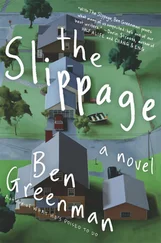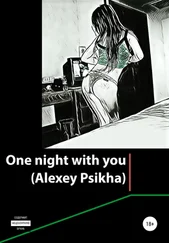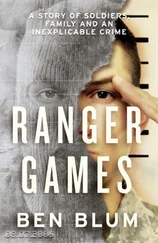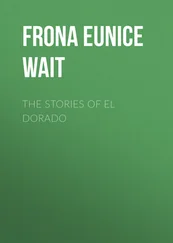As I sat and ate my sandwich, I saw a woman sitting by herself, also eating. It was an airport. People eat alone all the time. There was no reason to make too much of it. And yet, the more I watched her, the more I was sure that she was sad, and not sad in a transitional or instrumental way, but deeply, foundationally, irreversibly sad. She was in her mid-thirties, attractive but tired-looking, reading a business report filled with black-and-white charts. At one point, she took out her cell phone, started to make a call, and thought better of it. The hand holding the phone sank down until it was in her lap. I had taken my earphones out. I put them back in.
A few days after that, I mentioned the woman in the airport to a friend of mine, and she was silent for a long time, which was her way of letting me know she was angry. My problem, she finally said, wasn’t that I was mistaken in assuming that these other people’s lives were sad — she agreed that they were, for the most part — but that I acted as though they were different from me. “Well,” I said. I didn’t know what I was going to say after that. Luckily, she went on. She said it made her angry that I wouldn’t just acknowledge their sadness and that I felt compelled to push forward with a kind of dumb combination of empathy and superiority. “Well,” I said again. She had to go, she said. She went.
I thought about what she had said, and for a few minutes it seemed true. But then parts of it started to shimmer, like a mirage, and I wasn’t as certain anymore. The part about connecting to the common humanity in us all had a certain appeal, but the part about rejecting the temptation of that dumb mix of empathy and superiority bothered me. Isn’t that where much art comes from? You feel the pain, it starts to drive you to your knees, you bring yourself back up by telling yourself you don’t belong down in the pain, you move forward on this cushion of temporary superiority, and then you use the energy generated by this process to create something. In fact, after a few times, you come to value the sadness, to receive it with a kind of joy, because you know that it will, in time, bring you to creative work.
This principle, with some important variation, has been at the center of most of what I’ve written: collections ( Superbad, A Circle Is a Balloon and Compass Both ), novels ( Superworse, Please Step Back ), short stories, humor pieces, and essays. I write often about sadness and loneliness, which are present in all of us but which are harder to detect (if easier to feel) amid the modern-day rush of communications technology. The only cure, I think, is intimacy, which is what the people in my stories are struggling to achieve. Many of the stories in this book are set in the past, recent or distant, before the Internet and Facebook and Twitter began frittering away at legitimate human connection, and as a result the characters are preoccupied with conversation and correspondence, with voices and faces.
A while back, I wrote a story called “Snapshot,” which was about a middle-aged Russian researcher, a widower, and his epistolary friendship with an American scientist. The Russian does not know that the American is a woman until she sends a newspaper clipping that includes a photograph of her, at which point the Russian does what a man should always do when he encounters a woman who intrigues him — he studies the evidence:
He mounts the photograph on the wall over his workbench. As the afternoon proceeds, he comes to understand it better. Some of the heaviness of her face results from the shadow cast by the figure to her left, a well-known Harvard mathematician whose name he cannot recall now. And while the woman is older than he initially suspected — at least forty, he now guesses — he can see her twentieth year in the playful tilt of her head, her tenth in the unguarded brilliance of her smile. But it is her eyes that draw him most powerfully, with such a luminosity that looking into them, even through the intervening medium of the photograph, is like listening to the voice of their owner.
It’s probably narcissistic, and certainly solipsistic, to try to prove a broader point about mankind by quoting from my own work, but that paragraph goes to the heart of the sadness I assume is in most human interaction, even (especially?) when it is in pursuit of happiness. Another friend of mine, who is a young adult writer — I mean that she writes for young adults, not that she herself is a teenager — once told me that I was good at “funny sad you know,” which I initially took as an insult but came to wear as a badge. I learned to wear it as a badge because I shined it up and saw what she meant. By “you know,” she didn’t mean to be dismissive, but rather to isolate a certain dedication in my work to expressing both what is funny and what is sad — and, at the same time, to acknowledging the limits of expression. I have a third friend who once asked me why I write mostly about human relationships. “There’s more,” she said. She’s wrong. There’s not more, or at least not a more important job for fiction. You can (and should) stretch that theme around whatever frame you want, and put whatever frame you want around that theme. Stories can take place, as they do in this collection, in the distant past in wartime, in the recent past on the moon, on the imaginary border between two noncontiguous countries. No matter where they’re set, and no matter when, they explore the way men and women delight and infuriate each other, and in doing so illuminate my sense that this is still, after all these centuries, humanity’s proper central preoccupation.
I have recently started a few new projects. I won’t say too much about them, because I’m superstitious, but they have to do with some or all of the following topics: shaving, sweatshops, safety inspection, magicians, evolutionary biology, squids, football, the Great Mosque of Damascus. In every case, though, those topics are masks that fit over the faces beneath, and the faces beneath are the faces of men and women, trying their best to seek out the most satisfying companionship and fellowship. Scientists can make science meaningful. Clergymen can make God meaningful. Architects can make space meaningful. Musicians can make sound meaningful. I can only try to make language make life meaningful, and only for a little while. Funny sad you know: we do what we can with the tools we have.
“I can only try to make language make life meaningful, and only for a little while. ”
A Conversation with Ben Greenman
About the book
Ben Greenman is the author of What He’s Poised to Do, which was first published in 2008 as a limited-edition boxed set called Correspondences.
Alex Rose is a writer and designer and the publisher of Hotel St. George Press, which published Correspondences.
Cal Morgan is Ben’s editor and the editorial director of Harper Perennial. They discussed the project in a midtown Greek restaurant in October 2009.
CAL: Let’s start at the beginning. Ben, what inspired these stories in the first place?
BEN: For years, I’ve been writing about what happens between men and women. In earlier collections of mine, like Superbad , my interest in those themes might not have been as apparent, because the treatment was more experimental and often heavily comic. It was with A Circle Is a Balloon and Compass Both , in 2007, that I began to explore them more deliberately. I wondered: We have put people on the moon. We have split the atom. So why have we made so little progress in understanding how men and women deal with each other: the want, the wait, the hope, the hurt, and so forth?
Читать дальше












